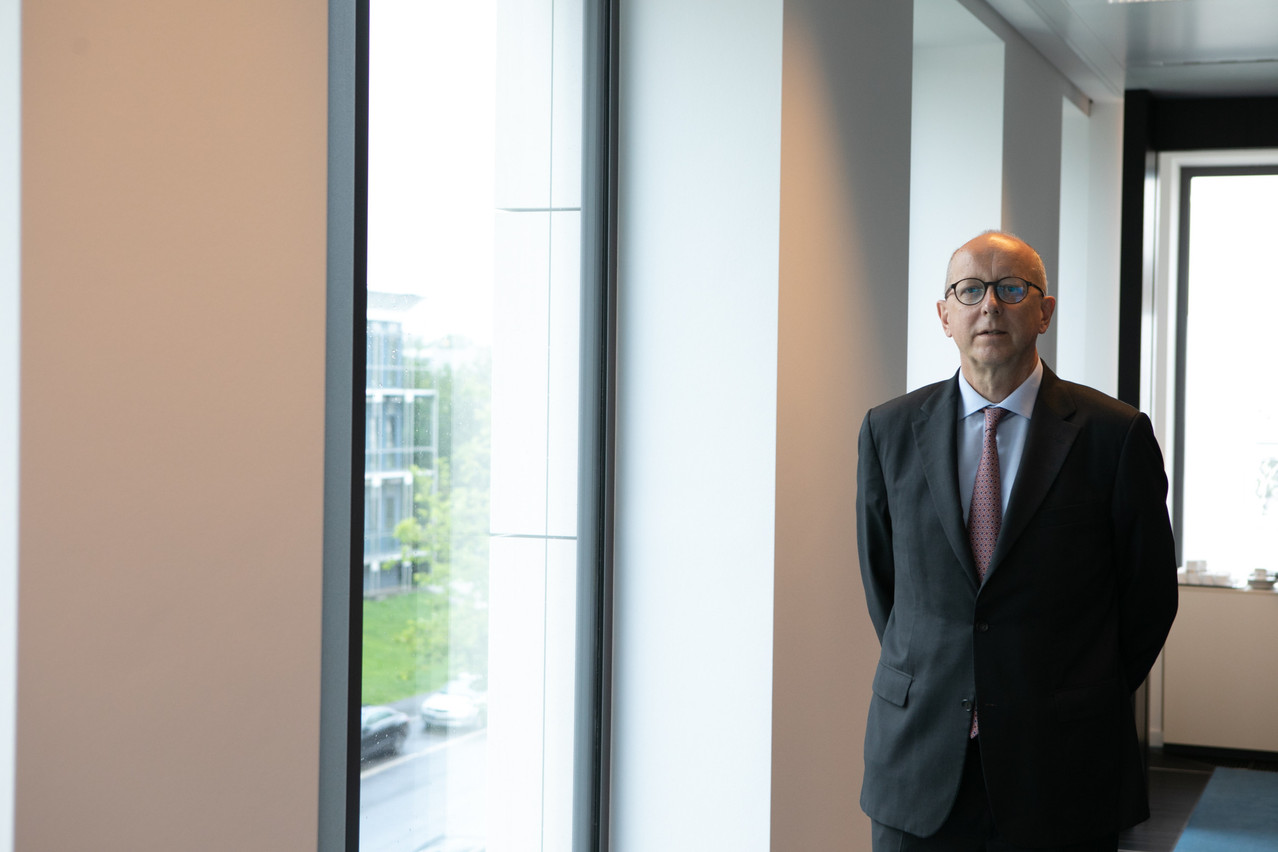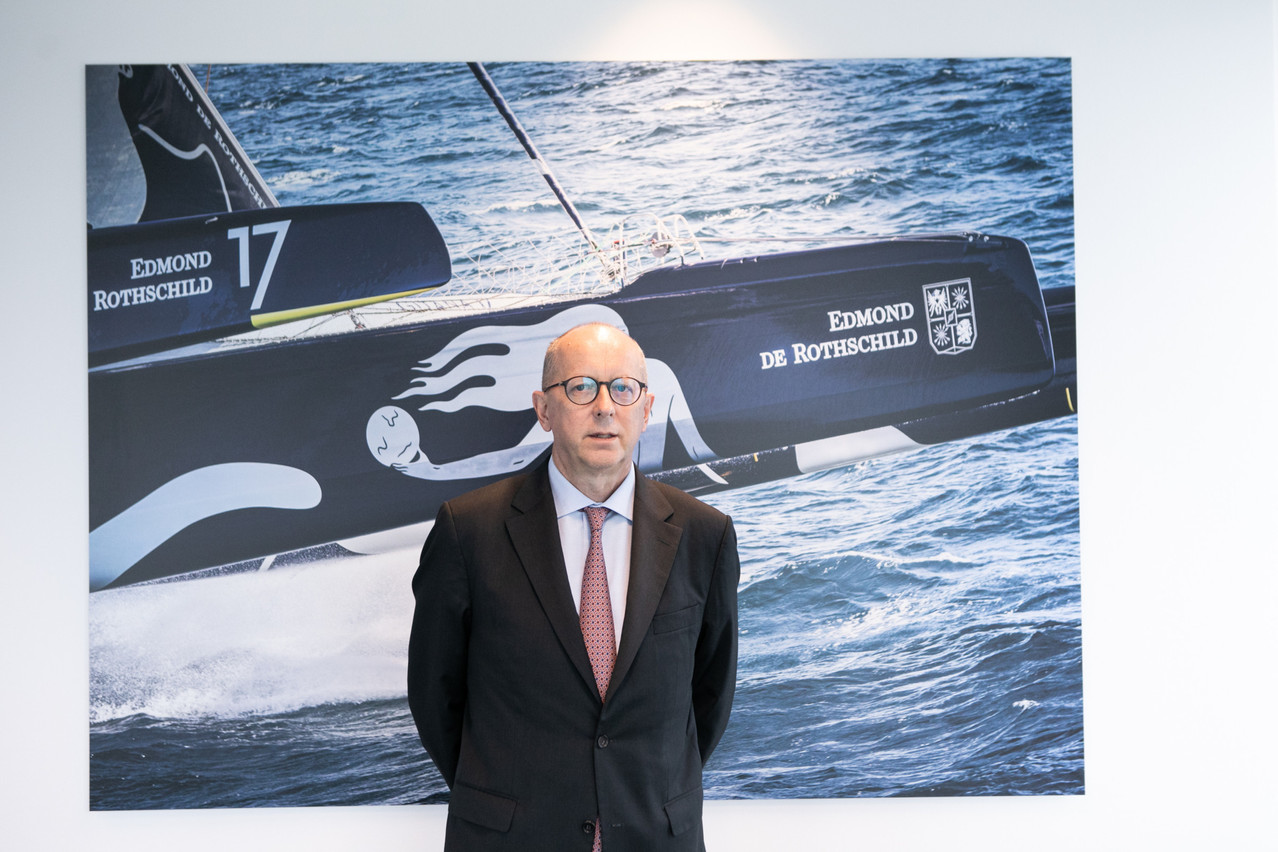is anything but a stranger to the financial sector, where he has been active since 1987, when he finished his economics studies and joined Banque Internationale à Luxembourg, where he spent 17 years in various positions, moving from the trading room to different management positions and even making a detour to Rome where, from 2003 to 2004, he was in charge of private banking, asset management and investment fund services. In 2004, he joined Bank Sal. Oppenheim jr. & Cie in Luxembourg as managing director and from 2007 onwards became general manager of Sal. Oppenheim jr. & Cie. S.C.A., where he was appointed member of the boards of the Swiss, Austrian and German subsidiaries of the group. After a foray into the world of private equity at BIP, a subsidiary of the La Luxembourgeoise Group in which he has also been active for three decades, he returned to BIL--then Dexia BIL--in 2011 as general manager and left in 2016 as chairman of the board of directors.
The fascination of Wall Street
Marc Fassone: By way of introduction, can you tell us about your background?
François Pauly: “The first time I worked in a bank was in 1982 during the summer holidays as a trainee in a KBL branch. But at the time, I had no desire to make a career in this sector...
What made you change your mind?
"I had the chance to do various internships in the banking world, but also in insurance and industry, especially the steel industry. In the end, it was banking that attracted me the most. I had done my dissertation on ECU financing in 1987, and BIL was one of the most active banks in the ECU. So I joined the trading room. The fascination with films like Wall Street must also have played a role.
How did you become the CEO of the Edmond de Rothschild Group?
"In 2016, I left the board of BIL because of constraints related to the directorships I had at the time, which were limited because I was chairman of a systemic bank. It was also a time in my career when my role was no longer to have executive mandates, but rather to be an independent director in various companies. And that's how I joined the board of Edmond de Rothschild in 2016 in Luxembourg and Geneva.
In the morning I was a director and in the afternoon a CEO.
However, you have returned to executive functions. How did this come about and why and how did they come to look for you?
"There are many answers to this question that others than myself should give. I believe that the group's strategy in relation to the succession of Vincent Taupin was to ensure continuity by using a person who already knew the group well. Having already spent more than five years in consultancy, in Switzerland at the holding company, at the bank and here in Luxembourg at Edmond de Rothschild Europe, that was my case. Given that in my previous life I had already been twice CEO of groups of similar size, or even larger, because of the shareholder's desire not to go hunting outside, there were few candidates left.
And I think that in the end, what was also decisive was that I acquired my experience in the two main areas of the bank: private banking and asset management. And, in particular, the illiquid asset management part, which is a fast-growing speciality and something I had been exposed to now for many years because, in other mandates, I was either on the side of asset managers or on the side of investors.
From board to management: how did the transition go?
"Very quickly: in the morning I was a director and in the afternoon a managing director. In a fast-moving world, sometimes there is not much time to prepare things in detail.

The pandemic has created an increased need for advice among private bankers' clients, which François Pauly intends to capitalise on Matic Zorman/Maison Moderne
A clear roadmap
What was your first decision as CEO?
"First of all, to respect Swiss punctuality. I believe that the world is moving so fast that we should not waste time because it is the most precious. My first task, and I am still finishing it, is to get to know the people in the different entities. In a boardroom you are exposed to your colleagues on the board and in the executive management and you rarely or never see the teams below. I need to get a picture of what is being done today in the different entities.
What is your roadmap and what are your objectives for the bank?
"The roadmap was laid out several years ago: to simplify the group's structure; to accelerate its digitalisation and to take advantage of our unique approach as a conviction-based investment house to differentiate ourselves.
Did the pandemic impact this strategy?
"We already had a number of important IT and digitalisation projects underway before the pandemic, such as the development of our common IT platform. The pandemic has acted as an accelerator here by providing us with working tools that we only dreamed of a few years ago. Such as videoconferencing.
The customer relationship has also changed. The world has seen some very significant events: a stall in the economy and then an impressive recovery in a negative interest rate environment. So there are a lot of questions for investors who need advice over time, which makes me very optimistic. Many investors, especially in the younger generation, want to have a positive impact through their wealth management. Sustainable finance is an even more important topic and one that will keep us busy for years to come. And I hope that our house, which has strong convictions on these subjects, will be the interlocutor of a large and growing number of investors and clients.
In March and April of last year, we had more intensive contact with our clients, which enabled us to have more in-depth discussions on the transfer of assets: what do we want to pass on to the next generation and when? It is these discussions that give value to the private banking profession.
A recent Capgemini study pointed out that robo-advisors are increasingly appealing to wealthy individuals. Do you see a risk of competition?
"I believe that robo-advisors and similar technological tools are useful tools that can be added to a market analysis or decision making. But in the high net worth segment, there are aspects that are not integrated in these models: it is the history of families, it is the will to pass on a heritage at a given moment, it is the emotions, it is sometimes the assets that nobody in the family wants to touch, it is sometimes exclusions for reasons linked to the history of a heritage. And all these elements mean that an algorithm can give certain clues, but not make the final decision.
Where do you see growth for your institution in the coming years?
"We have--and this is the reassuring fact--in the first 6 months growth in all our geographies and in most of our products. We have a growth plan for the next few years that will combine organic growth and external growth in certain geographies and segments depending on the evolution of our analysis and the opportunities that will be presented to us. We are fortunate to have excess equity of around 600 million euros which will allow us to seize opportunities. It is still too early to say which ones...
How have you seen the banking and financial markets evolve during your career?
"If I look at the two core businesses of the Luxembourg financial centre, which are also the businesses of our group worldwide, the changes have been major.
Private banking in the 1980s, when it first took off, thrived on its tax attractiveness. Forty years later, in a context of tax transparency, it is the quality of the advice, the service and the depth of the relationship that you can have with your client that is decisive. Today, people no longer come to Luxembourg for its tax attractiveness, but for the possibility of investing on a global scale in many different asset classes and accessing financial markets that are difficult to reach from a domestic market. This allows us today to have a much less volatile clientele than before because they are not dependent on a change in taxation, but based on a long-term relationship with their banker.
We operate on a small scale.
The investment fund business has also evolved considerably. The first Ucits Sicav in Luxembourg was launched in 1988. In 1990, I joined the board of directors of such a structure for the first time. We operated in a traditional way: governance was modelled on commercial companies, while the calculation of NAVs and reporting was partly done on spreadsheets, or even on handwritten sheets.
Today, we cover asset classes that we did not even know existed 40 years ago. Luxembourg has become the second largest fund distribution centre in the world and its role in the industry is recognised worldwide. Luxembourg has become a global brand.
What are the challenges to ensure that growth in these two pillars remains sustainable?
"For private banking, sustainability will depend on the quality of advice, the ability to attract and retain talent in a very competitive market and above all on the evolution of the cost structure. Professionals and regulators alike are aware of the importance of outsourcing projects and the pooling of execution platforms which, despite the fact that we are a country with salaries at the top end of the European range, enable us to maintain a certain competitiveness in terms of costs. For the fund industry, the challenges are similar. The evolution of costs has already led to the relocation of certain activities, fortunately those with lower added value. It is cost control that will make the difference."


